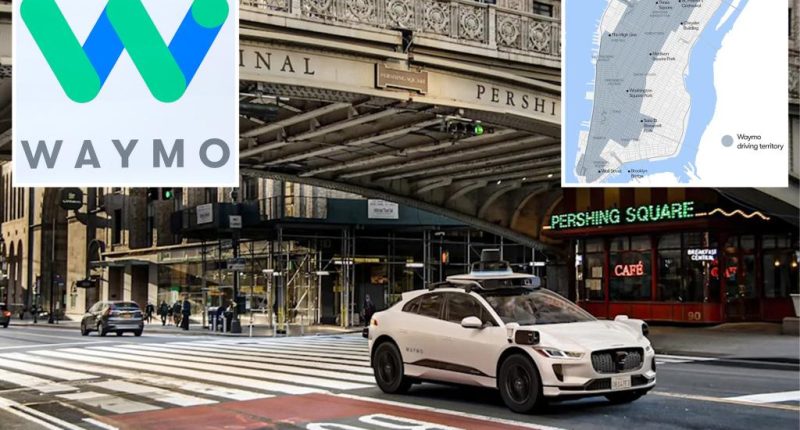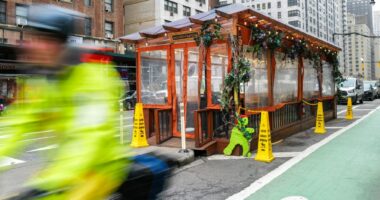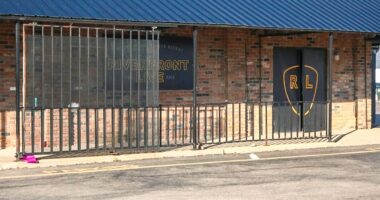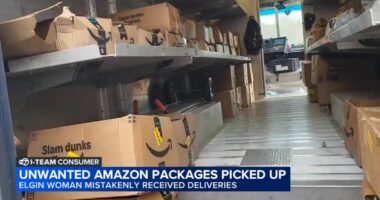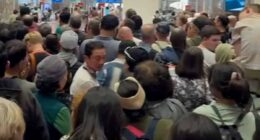Share this @internewscast.com

Ride-hailing pioneer Waymo said it aims to bring a fleet of autonomous vehicles to New York City beginning next month.
Waymo, the company under Google parent Alphabet, announced on Wednesday that it has submitted a permit application with the city’s Department of Transportation. The goal is to test a “small fleet” of self-driving cars in Manhattan, each with a trained specialist onboard to monitor operations.
“This is not an expansion, but we intend to eventually introduce our fully autonomous ride-hailing service to the city,” Waymo said in a statement.
The company is advocating for a broader revision in New York state law, which would permit the operation of fully driverless vehicles without any human supervision inside the car.
It previously drove some of its vehicles through the densely-populated city for a few months in 2021, but these were fully operated by human drivers and used to map city streets.
Waymo currently operates 1,500 fully-electric, autonomous cars across San Francisco, Los Angeles, Phoenix and Austin.
But New York City comes with its own unique set of challenges – like jaywalkers, cyclists who veer out of bike lanes, horse-drawn carriages, frequent construction work and zig-zagging taxi cabs.
It plans to drive vehicles manually throughout Manhattan, like it did in 2021, as it waits for permit approval.
The NYC Department of Transportation and Governor Kathy Hochul’s office did not immediately respond to The Post’s requests for comment.
Waymo has grown massively since its creation in 2009 as Google’s Self-Driving Car Project.
Now, it provides more than 250,000 fully autonomous paid trips each week across major US cities.
The service claims to make “roads safer” with fewer injury-causing crashes compared to an average human driver.
But operating vehicles without human drivers is not without its complications.
Most recently, Waymo was forced to halt its self-driving service in downtown Los Angeles after five of its vehicles were set ablaze during volatile anti-ICE protests.
Earlier in the year, it recalled nearly its entire fleet over a software glitch that could make the vehicles more likely to crash into chains, gates and other roadway barriers.
The vehicles have enraged California residents with incessant beeping, “trapped” passengers inside while screeching to a stop in the middle of a highway and been involved in nearly 20 crashes.
